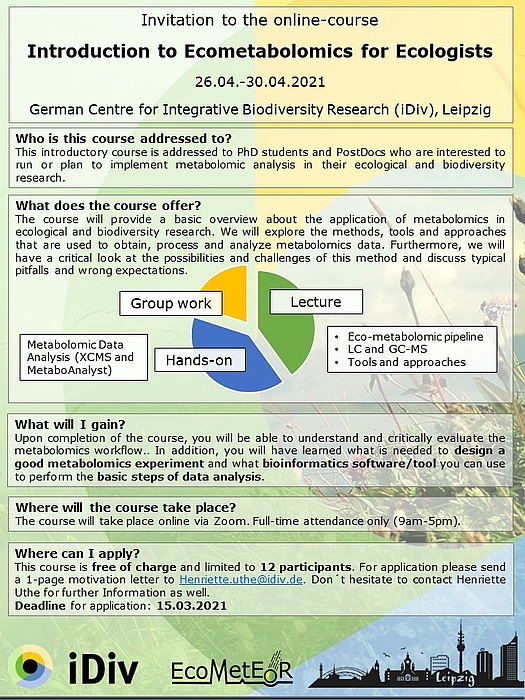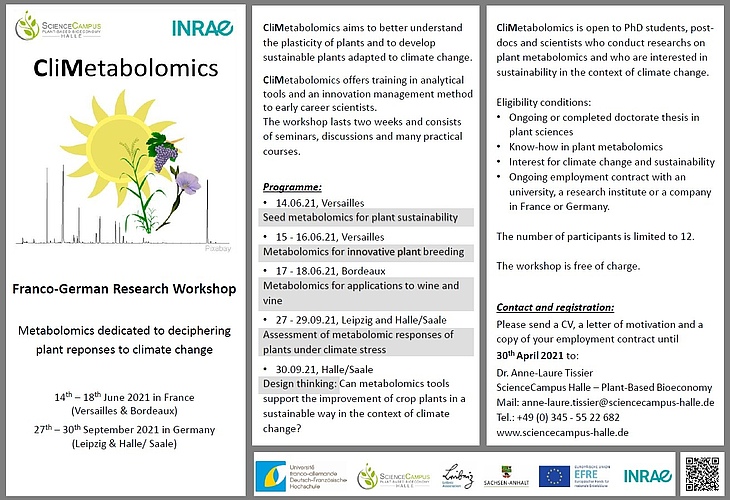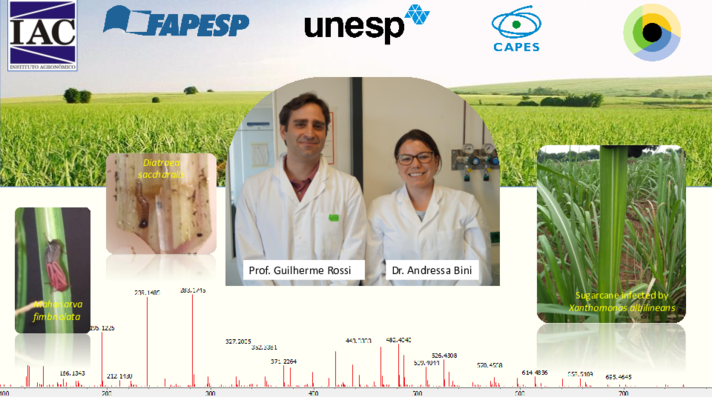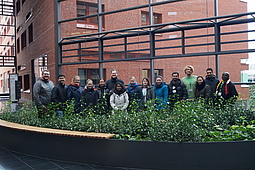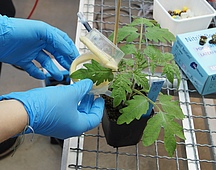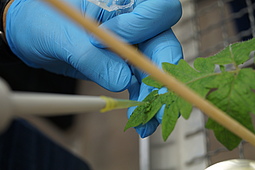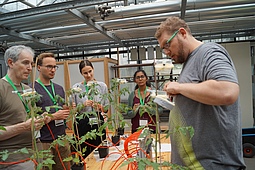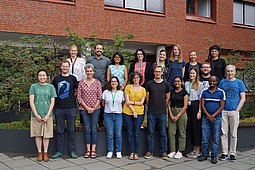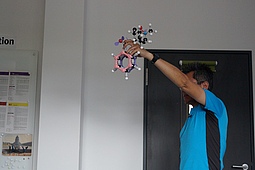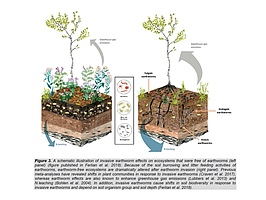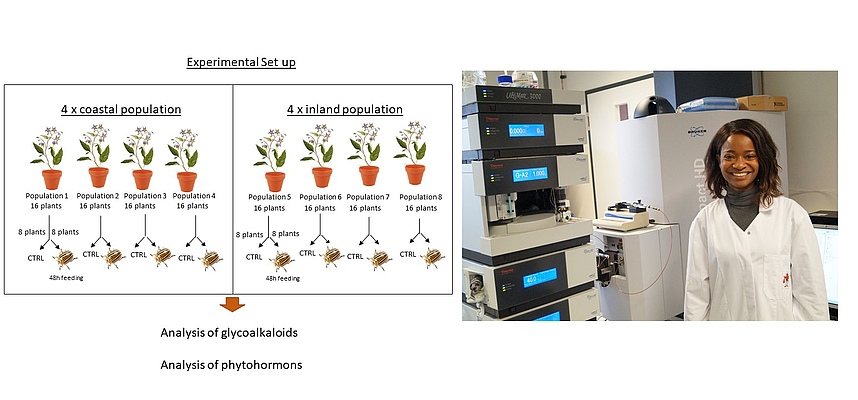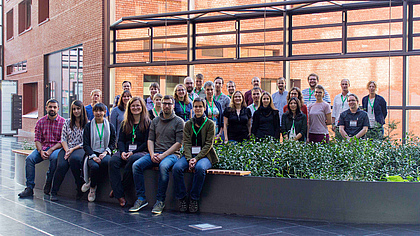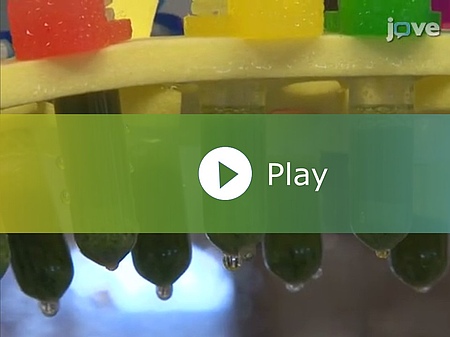Workshop: Sunburst in the metabolome
Chemical Compound Class Annotation Using Sirius and MetIgel
- Date: 29.06.2023 3-5pm + 05.07.2023 9am -3pm
- Mode: Hybrid
- Location: iDiv (Puschstraße 4, Leipzig) / Zoom
- Teacher: Dr. Henriette Uthe (EcoMetEoR/iDiv/Univ. of Jena)
- Guest: Dr. Markus Fleischauer (AG Böcker/Bioinformatics/Univ. of Jena)
- Charge: Free
- Registration Deadline: 31.05.2023
The analysis of plant metabolomic data can be extremely challenging, particularly when it comes to metabolite annotation. The lack of standard reference spectra and the complexity of plant metabolism mean that many compounds cannot be accurately annotated. However, chemical compound class annotation can provide valuable insights into the metabolomic data, even in the absence of detailed annotation.
In this hands-on workshop, our aim is to introduce you to SIRIUS and guide you through the process of analyzing your dataset to obtain chemical compound classes. During the second part of the workshop, we will explore the utilization of MetIGel, an R-based Shiny App, to generate sunburst plots.
If you´re interested to join this workshop or if you have further questions please contact Henriette.uthe@idiv.de
Workshop “Chemodiversity in Metabolomic data"
29.06.2023 9am-3pm, iDiv
- Mode: Hybrid
- Location: iDiv (Puschstraße 4, Leipzig) / Zoom
- Teacher: Dr. Hampus Petrén (Evolutionary Ecology of Plants, Department of Biology, Philipps-University Marburg)
- Charge: Free
- Registration Deadline: 31.05.2023
Chemodiversity or phytochemical diversity based on metabolomic data is a method of characterizing the phytochemical phenotype that is increasingly often used. This approach involves analyzing the chemical diversity and complexity of mixtures of metabolites produced by plants. Such measures of diversity can vary in response to changes in their environment, such as temperature, water availability, and nutrient availability; and may be functionally important for shaping ecological interactions between plants and the organism with which they interact.
By using appropriate indices (e.g. Shannon diversity) and understanding their interpretation, researchers can identify chemical differences between treatments, species or communities, and evaluate the chemical complexity of natural products. Without a clear understanding of chemodiversity and its corresponding indices, it can be challenging to extract valuable information from metabolomic data. Therefore, it is important to educate and train researchers on the appropriate usage of chemodiversity and its indices to ensure the accuracy and reliability of metabolomic analyses.
I would like to extend an invitation to you to join our upcoming one-day workshop on chemodiversity in metabolomics.
If you´re interested to join this workshop or if you have further questions please contact Henriette.uthe@idiv.de
Introductory Course on Ecometabolomics 2021 - Open for Registration Now!
Online course 26.04.2021-30.04.2021
Let´s start with metabololomics
The team of EcoMeteor organize the 5th time in a row the annually course " Introduction to ecometabolomics for ecologists". All PhD students, PostDocs and scientists who are planning to implement metabolomics in their ecological or biodiversity research are invited to register. Due to the pandemic the course will take place online.
For registration and further details please contact henriette.uthe@idiv.de
CliMetabolomics - A Franco-German metabolomics workshop on Metabolomics dedicated to decipher how plant reponses to climate change
Plants show an incredible plasticity to adapt to the changing climate. Molecular understanding of this plasticity could help to develop sustainable plants for agricultural or renaturalising purposes.
Several Groups (including EcoMeteor) of the Franco-German Network for Plant Metabolomics organize a 2-week workshop for PhD Student, PostDocs and scientists with know-how in metabolomics to exchange and bundle current methods and strategies to better understand the plasticity of plants and to develop sustainable plants adapted to climate change.
- The workshop will take place in France and Germany. Candidates have to follow the whole workshop
- Traveling, hotel and catering (for lunch only) costs will be covered by the grant and the WCH.
- The workshop is free of charge. The traveling and hotel costs will be financed (within the limit of the budget
- Candidates have to work or study in France or Germany. But they do not have to be employed by one of our institutes. The participation is open to everyone.
DFG Proposal "Rapid evolution and among-population variation in root exudate profiles" accepted!
EcoMeteor start collaboration with Christop Rosche to investigate the metabolomic changes in Conyzia candensis

Biological invasions are excellent models to study contemporary evolution. Non-native plant species can alter ecosystems and represent a global threat to the environment, public health and economy (Simberloff et al. 2013). Their impact on the novel environments is mainly determined by competitive interactions with the resident native plant communities (Callaway et al. 2011). We know that non-native plants often show dramatic differences in competitive interactions between native vs. non-native ranges. They can exhibit astoundingly high competitive ability in (parts of) their non-native ranges by suppressing the growth of neighbor plants as far as building up virtual monocultures.Conyzia canadensisis an excellent model species to study also the molecular mechanisms of this ability. Therefore, root exudats and root samples of different Conyzia population from different climatice zones (figure 1) will be analyzed together with EcoMeteor.
14.12.2020
Flexpool project "Epigenetic factors as molecular drivers of microbial biodiversity" accepted!
EcoMeteor start cooperation with Holger Deising, Ivo Grosse, François Buscot and Anna Heintz-Buschart
Abstract
The identification of molecular factors that shape microbial communities is central to understanding biodiversity. The ability to form secondary metabolites (SMs) is a hallmark of both bacteria and fungi, and the capacity to synthesize, tolerate and re-model these toxic chemistries will strongly impact the competitiveness of microorganisms and thus the composition of microbial communities. As fungal SM biosynthesis is largely epigenetically controlled, targeted deletion of genes encoding histone lysine methyltransferases (KMTs), opens a methodological toolbox permitting to rigorously test the hypothesis that SMs are key-drivers of microbial biodiversity, and allows understanding regulation of SM diversity at the molecular level.
The proposed work will significantly improve mechanistic understanding of shaping microbial community structures, and is therefore central to the scientific goals and mission of iDiv. By involving leading scientists of Martin-Luther-University Halle-Wittenberg, Leipzig University, Friedrich-Schiller-University Jena, the UFZ-Helmholtz Centre for Environmental Research and by taking advantage of an iDiv core group dedicated to molecular interaction ecology and iDiv platforms, the proposed project will establish tight cross-institutional connections and help to develop innovative research areas to integrate distinct disciplines. Moreover, understanding microbial confrontation-induced synthesis of toxic SMs will allow assessing the risk imposed by novel microbial antagonist-based plant protection strategies, making this project a project of societal relevance.
04.12.2020
Flexpoolproject "DArwin's Naturalization Conundrum rEvisited (DANCE) – Darwin meets omics" was accepted!
EcoMeteor starts collboration with Sylvia Haider, Steffen Neumann, Marten Winter and Curtis Daehler
Abstract:
Darwin's heritage to invasion ecology is to solve the question whether non-native species closely related to species of the resident community have a higher chance of invasion success compared to less closely related species - or if the opposite is the case and distinct non-native species are the more likely invaders (Darwin's naturalization hypothesis, DNH). Here we claim that the so called Darwin's naturalization conundrum can be solved by studying plant invasions along steep environmental gradients, making use of global gradients that vary in strengths of environmental and biotic filtering. We hypothesize that relatedness between native and non-native species supports invasion success under harsh environmental conditions where environmental filtering is the most important mechanism for community assembly. In contrast, atunder benign conditions where competition is the most important mechanism for community assembly, non-native species distinct from the resident community have the highest chance to invade. We further hypothesize that functional similarity to the resident community is a better predictor for invasion success compared to phylogenetic relatedness. Moreover, we will base functional similarity not only on traditional traits but in addition test a completely novel approach and determine relatedness between species by comparing their metabolic profiles.
The responsible PostDoc for this project will be Andrea Galmán.
02.10.2020

Yvonne Poeschl-Grau - our new EcoMetEoR PostDoc!
The EcoMeteor team proudly presents the new team member Dr. Yvonne Poeschl-Grau. Yvonne worked sveral years in the Bioinformatic Unit of iDiv and has lots of experience with ecometabolomic data analysis and data visualisation. She will support several EcoMEteor projects and develop teaching material about metabolomic data analysis with the open source pipeline workflow4metabolmcis on the Galaxy Server.
"Practical guide to implementing Metabolomics in ecological research" was published in Advances in Botanical Research
The challenges to implement metabolomics in own ecologcal and biodiversity research are diverse and project and design specific. Due to the multi-step character and the of an eco-metabolomic approach and the involvement of different scientific areas advice with expertise and experience is always welcome. The EcoMEteor platform prodly presents "A practical guide to implementing metabolomics in plant ecology and biodiversity research" in the Journal "Advances in Botanical Research" written by 6 co-authors with expertise of all 3 research areas (ecology, analytical chemistry and bioinformatics):
- Dr. Maria Sorokina from the Institute for Inorganic and Analytical Chemistry (Friedrich Schiller University, Jena)
- Dr. Kristian Peters (Bioinformatics and Scientific Data, Leibniz Institute of Plant Biochemistry, Halle/Saale)
- Dr. Maxime Hervé from the Institute for Genetics, Environment and Plant Protection - l`institut Agro (Université Rennes, France)
- Dr. Alexander Weinhold, Prof. Nicole van Dam and Dr. Henriette Uthe from the German Centre for Integrative Biodiversity Research (iDiv) and Institute of Biodiversity (Friedrich Schiller University, Jena)
In this chapter, we share our experience in ecometabolomics projects by describing the main challenges in combining different areas of expertise. We aim to provide strategies and practical solutions, particularly for project management, training, advising on experimental workflows before sampling and communicating realistic outcomes of the metabolomic analysis. We believe these strategies will help ecologists and metabolomics experts collaborate more effectively and fruitfully.
https://authors.elsevier.com/a/1b-gCErDqMCky
DOI: 10.1016/bs.abr.2020.09.019
01.11.2020
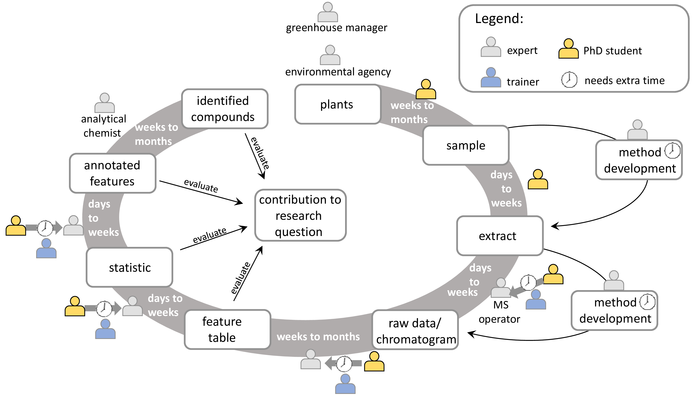
Trainees at EcoMetEoR discover the suitability of brassica species for pest control via biofumigation
Like many other crops sunflower also suffers from soil- born pathogens like the fungus Verticillium dahliae, which can cause up to 30% yield loss. The usual way in agriculture to control this fungus at present is to use variety resistance. However, as resistances have also been reported in these varieties, alternative and more sustainable strategies are needed. One way to control this pest is biofumigation. Biofumigation is defined as the suppression of soil pests and diseases resulting from hydrolysis products, i.e., toxic isothiocyanates (ITCs), released in the soil after incorporation of Glucosinolate (GSL)-containing plant tissue (Angus et al. 1994). These released hydrolysis products have an biocide effect on the fungus.
Suitable plants for this purpose are brassica species like black mustard, turnip rape and fodder radish. Rebekka F. and Leila Patzelt (UL) spend their 4-weeks internship in September 2020 at EcoMeteor to investigate the total glucosinolate content and profile in different brassica species. During their time at iDiv they learn how to isolate glucosinolate out of different plant organs and how to analyze them via HPLC-UV (Grosser and van Dam, 2012). Furthermore they will perform mass spectrometric analysis to structurally describe unknown candidates. This project is part of a cooperation with Neila Ait Kaci Ahmed from the French National Research Institute for Agriculture, Food and the Environment – INRAE
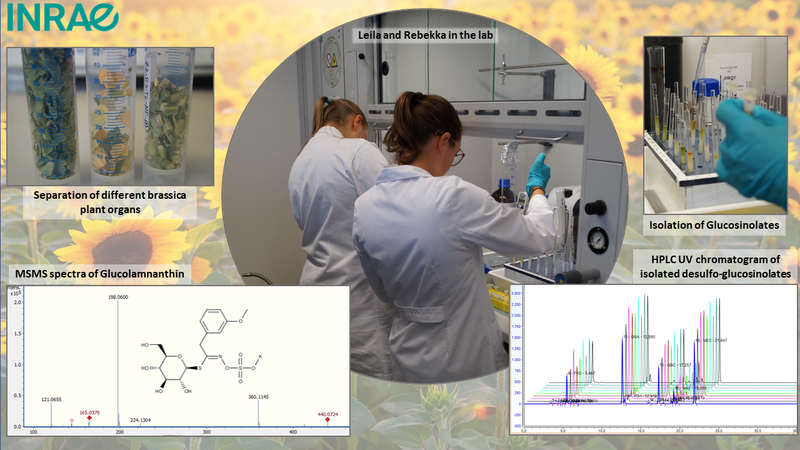
Unraveling the defense mechanism of Sugar cane
Dr. Andressa Bini and Prof. Guilherme Rossi from Sao Paulo are hosted by EcoMetEoR
Sugarcane is one of the main sources of sugar and bioenergy worldwide and has a crucial impact on Brazilian economy. Breeding programs produces sugarcane genotypes with different agronomical features like enhanced production potential and resistance to biotic stresses. However, the resistance molecular mechanisms of most sugarcane genotypes are still unraveled. For this collaborative research between Centro de Cana (IAC, Ribeirão Preto-SP), São Paulo State University (Unesp, Jaboticabal-SP), and iDiv (Leipzig, DE), Dr. Andressa Bini and Prof. Guilherme Rossi brought samples of sugarcane genotypes exposed or not to different biotic stressors. Dr. Bini is investigating the molecular responses of sugarcane genotypes against leaf scald disease caused by Xanthomonas albilineans. Dr. Rossi is investigating how different genotypes respond to herbivory using insects with different feeding habits. The main goal of this collaborative research is to understand better the interactions of sugarcane genotypes with competitors as a form to develop sugarcane pest and disease management using natural plant resistance.
PhD Course 2020 "VOC´s: from volatile sampling to data processing"
Volatile organic compounds (VOC´s) play an important role in interaction between plants, animals and their environment. Static and dynamic approaches to collect VOC´s in combination with gas chromatography-mass spectrometry analysis is a powerful tool to understand the composition, chemistry and the dynamic of these compounds. The successful application of this tool is based on a profound basic knowledge about the correct sampling strategy, the working principle of a mass spectrometer and the data analysis and interpretation.
To enable PhD students to use this powerfull approach EcoMetEoR organised a 3-day workshop including lectures, student talks and hands-on sessions. 14 Students from the iDiv konsortium and also from abroad discussed with PostDocs and PI´s of the university of Leipzig and Jena about the current challenges in trapping volatiles in different systems and how to analyze them via GC-MS.
PhD Summercourse "Introduction to Eco-Metabolomics for Ecologists 2019" was a big success
For the third time in a row the EcoMetEoR platform and the members of the MIE group organized the introductory course on Eco-Metabolomics for PhD students from the 12th to the 16th of August. We are very pleased of the very high interest in the course, more than 12 PhD students from the iDiv consortium and abroad ( e.g. France, Serbia, Hungary) participated. During that week, the students learned about the correct experimental design, how to harvest and process the samples, the working principles of LCMS and GCMS and about the challenges considering data analysis and metabolite prediction. Next to the lectures given by PostDocs and PhD students of the MIE group and Nicole van Dam, the students had the chance to apply the learned content directly during hands on sessions. Especially the data analysis with XCMS and MetaboAnalyst was highly appreciated. The EcoMetEoR platform thanks all the lecturers and participants for such a great week!
Gülcin Sevim visited the EcoMetEoR platform to analyze Glucosinolates
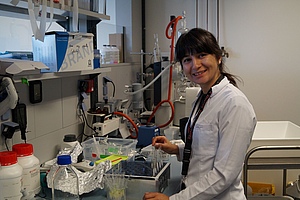
*Grosser, K., and van Dam, N.M. (2017). A Straightforward Method for Glucosinolate Extraction and Analysis with High-pressure Liquid Chromatography (HPLC). J Vis Exp.
Effect of invasive earthworms on intraspecific plant trait variation, biotic interactions and community composition.
DFG Project Proposal was accepted!
The invasion of exotic earthworms often causes non-random changes in diversity above- (Craven et al. 2017) and belowground (Eisenhauer 2010, Ferlian et al. 2018), suggesting that earthworm invasion may alter how trait-mediated mechanisms impact ecosystem functioning. The EcoMeteor platform will support the group of Professor Nico Eisenhauer and perform the untargeted metabolomics analysis for profile comparison.
Sandra Boswinkel: Geographical location influences insect performance
EcoMeteor and MIE welcome Sandra Boswinkel
Sandra Boswinkel is a Bachelor Student from Radboud Unversity in Nijmwegen. In the course of her bachelor thesis she´s investigating the effects of geographical location on insect performance by comparing the performance of inland versus coastal populations of solanum dulcamara when they are exposed to the Colorado potato beetle (Leptinotarsa decemlineata). Solanum dulcamara belongs as potato to the family of Solanacea and was therefore selected as model plant to investigate potato pests. Furthermore, previous research on coastal vs inland populations of solanum dulcamara showed that the coastal plants were less desired than inland plants what might be due to their higher glycoalkaloid content. During her research stay from the 04th to the 15th of March, Sandra analyzed the abundance of glycoalkaloids and phytohormons in the leaves of Solanum dulcamara collected at 8 different collecting points from the coast and in the inland of the Netherlands.
EcoMeteor and MIE are hosting Dr. Hisham Abd El-lateaf

Dr. Hisham Abd El-lateaf from the National Research Centre in Cairo spends a 2-weeks research stay with the EcoMetEoR platform in iDiv.
In his current project he is studying the analysis and quantification of glucosinolates in seeds and meals of moringa oleifera and moringa peregrina.The aim of this project is to maximize the utilization of the moringa meal that remains after oil extraction. By Studying the effect of using different procedures for oil extraction including (hydraulic pressing, Screw pressing and extraction by solvent) from two species of moringa seeds grown in Egypt (moringa oleifera and moringa peregrina) on the content of their meals of glucosinolates qualitatively and quantitatively with emphasis on the biological activity of pure glucosinolates against different cancer cell lines. In addition the investigation also aims to study the effect of aqueous treatment of the cakes of the previous two species of moringa seeds on the content of their meals of glucosinolates.
Contact details: hishamabdel-lateafabdel-haleam@nrc.sci.eg
New guests in iDiv- EcoMetEoR hosts Dr. Aarti Gupta and Dimitri Orine
Dr. Aarti Gupta and PhD Dimitri Orine are visting the EcoMetEoR platform to analyze the content of chlorogenic acids and different glycoalcaloids in Solanum lycopersicum under different watering conditions and myccorhiza colonization.
Dimitri Orine is a PhD student from the University of Neuchâtel in Switzerland. He is involved in a European Innovative Training Network called “Microbe-induced Resistance to Agricultural Pests”.This project is focused on basic and applied research on context-dependency of microbe-induced resistance, mechanisms, and impacts on plant performance and other biocontrol organisms. The aim is to improve our ability to predict the effectiveness of microbe-induced resistance under different biotic and abiotic conditions.As a part of the project, he carries out fundamental research to investigate the effect of eco-climatic adaptation into tolerance-induction by microbes against herbivore pests.
Dr. Aarti Gupta is a Post-doctoral Fellow at Institute of Plant Genetics at the Polish Academy of Sciences in Poznan (Poland).Her current research involves understanding the molecular mechanisms of incompatible interaction between the Hypericumperforatum and the non-host pathogen Agrobacteriumtumefaciens. For the purpose, she is employing transcriptomic, biochemical and functional genomics tools. Here at iDiv, she´s attending a comprehensive hands-on training on metabolomes, glucosinolates, and phytohormones extraction and data analysis.
Google Scholar: https://scholar.google.pl/citations?user=-e8OfUgAAAAJ&hl=en
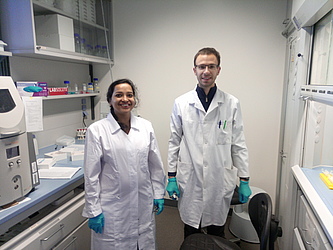
Successful Workshop "Introduction to Ecometabolomics for Ecologists"
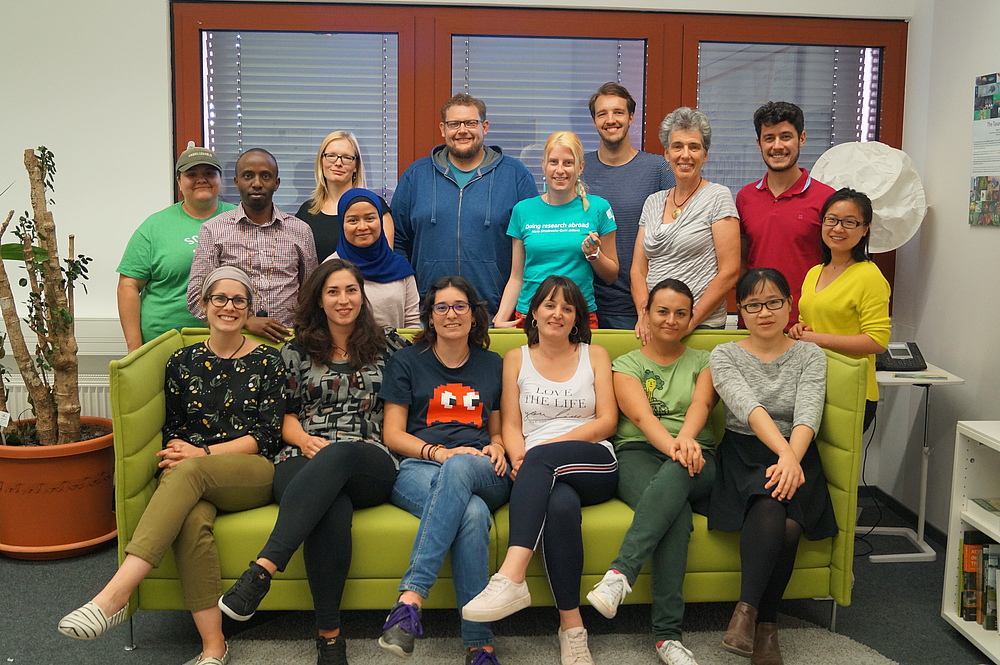
From the 27th to 31st of August 15 PhD Students and 1 PostDoc participated the introductory workshop "Introduction to Ecometabolomics for Ecologists". The week was filled with lectures, hands-on sessions and many discussions aboutthe application of metabolomics in ecological research. The participants learned about the design of a metabolomic experiment, how to extract the metabolites and collect volatile compounds and how to process and interpret the MS Data.
Gemeinsame Publikation des Ecometabolomic-Workshops "Current Challenges in Eco-Metabolomics"
Neben dem enormen Wissens-und Erfahrungsaustausch wurde nun als weiteres Resultat dieses intensiven Workshops der gemeinsame Review Artikel "Current Challenges in Plant Ecometabolomics" im International Journal for Molecular Science von 30 Teilnehmern veröffentlicht (http://www.mdpi.com/1422-0067/19/5/1385).
News from EcoMetEoR
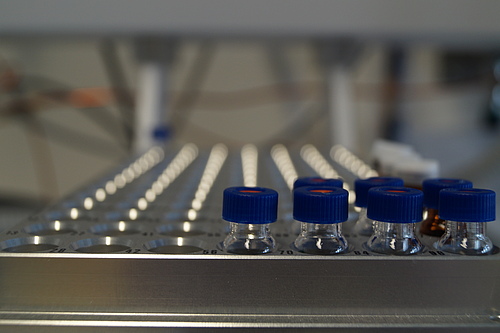
Two postdoctoral researcher positions at the German Centre for Integrative Biodiversity Research (iDiv) in Leipzig. › mehr
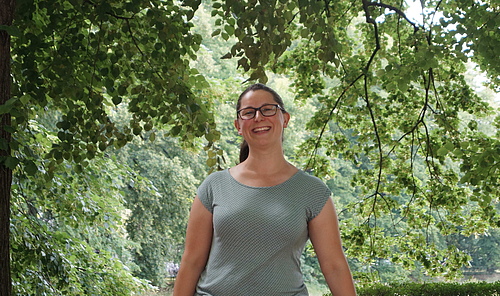
Katja Steinauer, PostDoc at the Netherlands Institute of Ecology (NIOO-KNAW), stays with us in June 2018 as a guest researcher using the facilities of the EcoMetEoR platform. › mehr
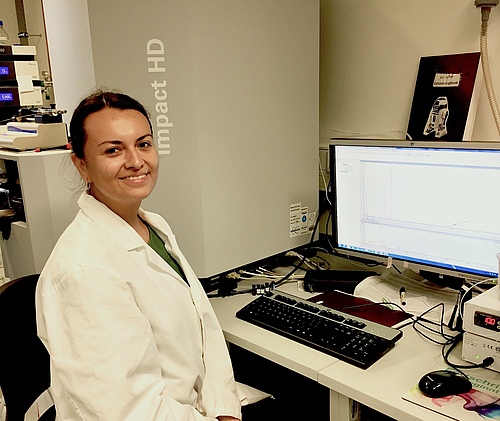
Dieser Artikel ist nur auf Englisch verfügbar. For the next months, Abigail Moreno-Pedraza (CINVESTAV, Mexico) and Diandro Ricardo Barilli (UNESP, Brazil) stay with us as guest researchers of the… › mehr
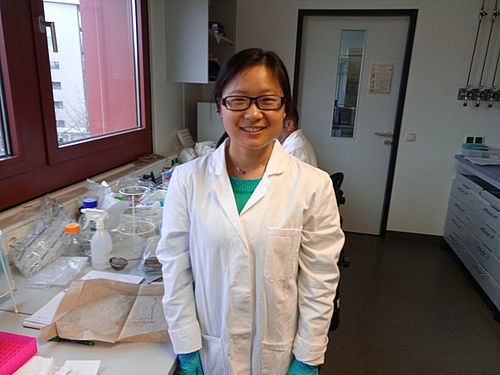
MIE and EcoMetEoR host Jiao Qu › mehr
Interesting homepages
Homepage of the European Metabolomics Training Coordination Group (EmTraG) - Overview about Metabolomics Training courses and Metabolomics Training Centres
Homepage of the Metabolomics Society - Useful information on upcoming events, Subscription for Metabolomics Newsletter, Jobs, Tutorials, Databases
Molecular Interaction Ecology group at iDiv - Molecular and chemical mechanisms governing interactions between plants and their biotic and abiotic environment.
